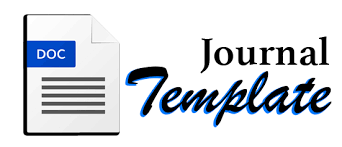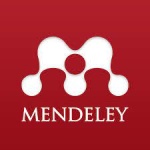PENDEKATAN PARTISIPATORIS DALAM PENGELOLAAN SAMPAH PLASTIK MELALUI PROGRAM ECOBRICK DI DESA KOTA BATU, CIOMAS, BOGOR
Keywords:
Ecobrick, Sampah Plastik, Pengabdian Masyarakat, LingkunganAbstract
Permasalahan sampah plastik masih menjadi isu serius di Indonesia karena menimbulkan pencemaran lingkungan dan berdampak pada kesehatan masyarakat. Salah satu solusi kreatif yang ditawarkan adalah pemanfaatan ecobrick, yaitu botol plastik bekas yang diisi padat dengan sampah plastik nonorganik sehingga dapat dimanfaatkan sebagai bahan bangunan sederhana dan ramah lingkungan. Kegiatan pengabdian masyarakat ini dilaksanakan di Desa Kota Batu, Kecamatan Ciomas, Kabupaten Bogor, oleh mahasiswa Universitas Islam Negeri Syarif Hidayatullah Jakarta. Metode yang digunakan adalah pendekatan kualitatif partisipatoris yang melibatkan masyarakat secara aktif dalam tahapan pengumpulan bahan, pembuatan ecobrick, penyusunan kerangka, hingga kegiatan edukasi. Hasil kegiatan menunjukkan bahwa ecobrick tidak hanya menjadi solusi praktis dalam mengurangi sampah plastik, tetapi juga berfungsi sebagai sarana edukasi lingkungan yang efektif. Tantangan yang dihadapi meliputi rendahnya kesadaran masyarakat, keterbatasan fasilitas, serta keberlanjutan program pasca-pendampingan. Secara keseluruhan, program ini berkontribusi dalam meningkatkan kesadaran masyarakat terhadap pengelolaan sampah dan mendukung Tujuan Pembangunan Berkelanjutan (SDGs), khususnya poin 12 tentang konsumsi dan produksi yang bertanggung jawab serta poin 13 tentang penanganan perubahan iklim.
References
Creswell, J. W., & Poth, C. N. (2018). Qualitative Inquiry & Research Design: Choosing Among Five Approaches (4th ed.). Los Angeles: Sage.
Haryadi, Yofi, Banyak Sampah di Kali Ciomas, Bukti Masyarakat Belum Sadar Lingkungan, 13 Januari 2025 lihat https://rri.co.id/daerah/1251224/banyak-sampah-di-kali-ciomas-bukti-masyarakat-belum-sadar-lingkungan, diakses pada 23 September 2025
Hidayat, R. (2022). Pengelolaan Sampah Plastik Berbasis Masyarakat Melalui Ecobrick. Jurnal Pengabdian Kepada Masyarakat, 7(2), 101–110.
Ikhsan, Muhammad, Tontra Wilda Syam, Pengenalan Ecobrcik Di Sekolah Sebagai Upaya Penanggulangan Masalah Sampah, Jurnal Abdimas Patikala, Vol 1, No 1, September 2021, H. 32-38
Lestari, D. (2019). Inovasi Ecobrick sebagai Solusi Alternatif Pengurangan Sampah Plastik. Jurnal Lingkungan dan Pembangunan, 4(1), 55–64.
Mangulu Erna Maria, Mengenal Ecobrick: Pentingnya Memanfaatkan Sampah Plastik Menjadi Barang Yang Memiliki Nilai Guna, 16 Juli 2024, lihat https://dlh.bulelengkab.go.id/informasi/detail/artikel/79_mengenal-ecobrick-pentingnya-memanfaatkan-sampah-plastik-menjadi-barang-yang-memiliki-nilai-guna, diakses pada Selasa 23 September 2025
Permana, Y. (2021). Implementasi Kebijakan Jakstranas dalam Pengelolaan Sampah Rumah Tangga. Jurnal Administrasi Publik, 9(3), 215–226.
Pradana, A. (2020). Ecobrick: Solusi Kreatif Pengolahan Sampah Plastik. Jurnal Sains Lingkungan, 12(2), 77–86.
Ramdhan1, M, Hermawan, Erwin, Permasalahan Sampah Di Kota Bogor Sebagai Wilayah Penyangga Dki Jakarta, Jurnal Riset Jakarta, Vol. 15, No 2, November 2022, H. 77
Rahmawati, N. (2021). Pengembangan Ecobrick sebagai Inovasi Manajemen Sampah Berbasis Komunitas. Jurnal Teknologi dan Lingkungan, 8(1), 44–53.
Sari, M. (2018). Pemberdayaan Masyarakat dalam Pengelolaan Sampah melalui Ecobrick. Jurnal Pengembangan Masyarakat, 5(2), 130–140.
Utami, P. (2022). Program Ecobrick untuk Pemberdayaan Desa dan Pengurangan Sampah Plastik. Jurnal Pemberdayaan Sosial, 6(1), 89–98.
Downloads
Published
Issue
Section
License
Copyright (c) 2025 Nanda Nafis Iqbal Hidayatullah, Nazhim Akmal, Majid Fatih Al-Jamali

This work is licensed under a Creative Commons Attribution-NonCommercial-ShareAlike 4.0 International License.
Please find the rights and licenses in InEJ. By submitting the article/manuscript of the article, the author(s) agree with this policy. No specific document sign-off is required.1. License
The non-commercial use of the article will be governed by the Creative Commons Attribution license as currently displayed on Creative Commons Attribution-NonCommercial-ShareAlike 4.0 International License.
2. Author(s)' Warranties
The author warrants that the article is original, written by stated author(s), has not been published before, contains no unlawful statements, does not infringe the rights of others, is subject to copyright that is vested exclusively in the author and free of any third party rights, and that any necessary written permissions to quote from other sources have been obtained by the author(s).
3. User/Public Rights
The spirit of InEJ is to disseminate articles published are as free as possible. Under the Creative Commons license, InEJ permits users to copy, distribute, display, and perform the work for non-commercial purposes only. Users will also need to attribute authors and InEJ on distributing works in the journal and other media of publications. Unless otherwise stated, the authors are public entities as soon as their articles got published.
4. Rights of Authors
Authors retain all their rights to the published works, such as (but not limited to) the following rights;
Copyright and other proprietary rights relating to the article, such as patent rights,
The right to use the substance of the article in own future works, including lectures and books,
The right to reproduce the article for own purposes,
The right to self-archive the article,
The right to enter into separate, additional contractual arrangements for the non-exclusive distribution of the article's published version (e.g., post it to an institutional repository or publish it in a book), with an acknowledgment of its initial publication in this journal (InEJ: Indonesian Engagement Journal).
5. Co-Authorship
If the article was jointly prepared by more than one author, any authors submitting the manuscript warrants that he/she has been authorized by all co-authors to be agreed on this copyright and license notice (agreement) on their behalf, and agrees to inform his/her co-authors of the terms of this policy. InEJ will not be held liable for anything that may arise due to the author(s) internal dispute. InEJ will only communicate with the corresponding author.
6. Royalties
Being an open accessed journal and disseminating articles for free under the Creative Commons license term mentioned, author(s) aware that InEJ entitles the author(s) to no royalties or other fees.
7. Miscellaneous
InEJ will publish the article (or have it published) in the journal if the article’s editorial process is successfully completed. The editors of Journal may modify the article to a style of punctuation, spelling, capitalization, referencing and usage that deems appropriate. The author acknowledges that the article may be published so that it will be publicly accessible and such access will be free of charge for the readers as mentioned in point 3.



